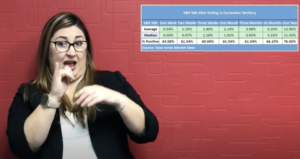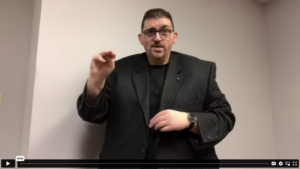Our clients have received a lot of confusing information about what is happening in the global markets, economies and governments. For many people, this confusion has led to an uncertainty about where to focus, when to be concerned, and when to simply shut out the “noise” of information overload. We have been getting many inquiries from our clients who are concerned about the federal government shutdown and the upcoming debt ceiling decision. In consideration of general investors’ experiences with the bear markets of 2000-02 and 2008, we understand their concerns, and we are happy to offer our thoughts.
We believe that a short-term government shutdown will have a minor impact on the economy, and at the same time, no one can accurately forecast the consequences of a default on our debt. It does not matter what an investor reads from widely dispersed articles or sees on TV shows; forecasting is impossible and futile. At a conference for financial advisors last week, several of the Kramer Financial staff heard an update from Bob Benmosche, who is President and CEO of AIG, regarding his meeting with President Obama on October 2nd. Mr. Benmosche was optimistic that both sides understand what is at stake as it relates to the debt ceiling and are determined not to allow a default to take place.
It is important to remember that major financial and economic crises have happened over the years. For example, the following crises (just to name a few) occurred*:
- 1984: Seventh-largest bank in the U.S., Continental Illinois, become insolvent.
- 1990: Japanese asset bubble collapsed. Japan has yet to recover
- 1997: “Asian contagion” caused assets to lose value and banking crises to spread across Asia.
- March 2000: With the Nasdaq at more than 5,100, the dot-com burst.
- September 11, 2001: Attacks on the World Trade Center in New York and in Washington shuttered the New York Stock Exchange until Sept 17, the longest closure since 1933. When it reopened, the Dow fell 684 points. Around the globe, economies went into recessions and equity market crashed.
- 2007: U.S. financial crisis began.
- August 2011: U.S. lost its AAA credit rating.
Some people have commented that this federal government shutdown is the first time in history. This is not true as there have been 17 shutdowns in American history, between the 1970s and the 1990s.
As we keep track about what is happening in Washington DC, it is worth reminding ourselves that crises happen often. At Kramer Financial, we are concerned about the mixed signals our clients are receiving – the hysterical arguments to which people bring their own private set of “facts”.
We offer this way for our clients to stay focused on:
- In the middle of so many apocalyptic arguments and biased facts, it is very easy to get overwhelmed with information. We believe it makes sense to widen our perspective. For instance, having a good understanding of how crises emerged and faded in the past enables us to make informed decisions.
- Just because this newspaper says so does not make this so. It makes sense to be aware of “confirmative bias”, which is a tendency of people to favor information that confirms their beliefs.
- It has been our belief that it is crucial for our clients to attain distance from emotions and to stay aware of their personalized goals. This approach allows them to make meaningful and purposeful decisions. After all, without a personalized vision of the future, investors will struggle to create meaning and purpose in an increasingly change-driven world.
While we don’t know what will happen, what the outcome of debt ceiling will be, or how long the shutdown will be, we do know that it makes sense to have an intelligent customized plan. This plan includes an understanding that investors accept the idea that many crisis’s will happen, perhaps about one every other year or so, and live through them with calmness and composure.
*Source: CBS Market Watch. Investing involves risk including the potential loss of principal. No investment strategy, including diversification, asset allocation and rebalancing, can guarantee a profit or protect against loss. Past performance is no guarantee of future results. <br />Although the information has been gathered from sources believed to be reliable, it cannot be guaranteed, and the accuracy of the information should be independently verified. It is our goal to help investors by identifying changing market conditions; however, investors should be aware that no investment advisor can accurately predict all of the changes that may occur in the economy or the stock market.





